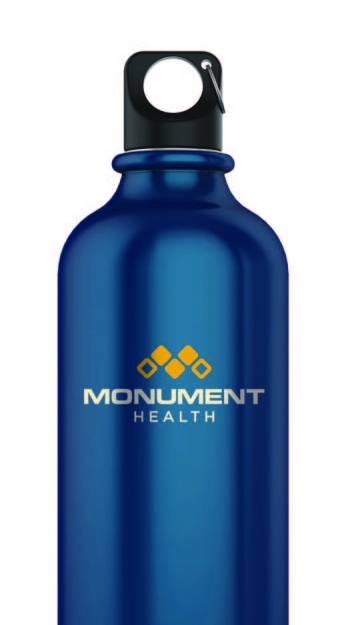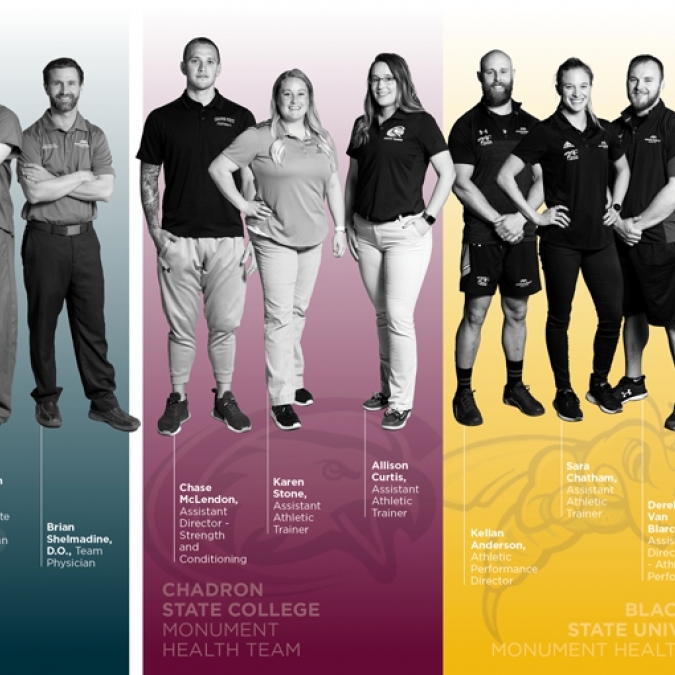Undoubtedly, you’ve heard the old saying, “You can lead a horse to water but you can’t make him drink.” Hopefully, what’s true of horses isn’t true of people as well. While a number of studies indicate that up to 75 percent of adults in the U.S. are chronically dehydrated, there’s still hope for meeting our hydration needs, and those of our loved ones. With a little more knowledge about H2O and the risks of dehydration, these hot summer months are the perfect time to improve hydration habits.
Water you doing?
Water makes up the majority of the human body — roughly 65 percent for men, and 55 percent for women. Because it’s such a significant percentage of the body, it’s crucial that people of all ages stay adequately hydrated. Every organ in the human body — and every cell, for that matter — requires water to function well. Without enough water, we can become confused, struggle to breathe, our hearts work harder, our intestines don’t function well and our kidneys become strained.
“Because water impacts every part of our bodies, dehydration can present with many symptoms,” said Sarah Fitzsimmons, PA-C at Monument Health Sturgis Clinic. “In urgent care, we frequently see dehydrated patients experiencing dizziness, headaches, fast heart rate and decreased urine output. If you are feeling dehydrated, start trying to hydrate yourself with cool liquids and get to a cool place. Seek medical care if you have concerns about dehydration or aren’t able to help yourself feel better relatively quickly.”
Dehydration doesn’t need to be extreme to have a detrimental effect. Physical and mental performance can be reduced when an individual is dehydrated by as little as 2 percent of their body weight, impairing decision making, motor function and the ability to maintain focus. Add heat into the mix, and you have a recipe for danger. “As we move into the summer months, we worry about our patients who have dehydration combined with high heat exposure. If you have been out in the heat and start feeling confused, have body aches, have a fever or start throwing up, please seek medical care right away,” Sarah said.
HYDRATION FOR ALL AGES
Although good hydration matters at every stage of life, how we stay hydrated can vary depending on age. Here are some helpful guidelines for every age.
INFANTS
The percentage of body weight made up of water is actually higher in infants — up to 78 percent, dropping to about 65 percent by the time they’re 1 year old. Even so, babies don’t need to carry around a Stanley Cup or wear a CamelBak. Unless a doctor or provider makes special recommendations, babies younger than 6 months old only need breast milk or formula. After 6 months of age, babies can begin sipping on water with meals. Keep in mind that infants can overheat easily, so try to keep them out of the hot sun and don’t dress them in more layers than you would want for yourself. Unless your health care provider has specifically recommended it, your baby does not need juice or electrolyte drinks.
KIDS
Kids should have unrestricted access to water at all times. Many families find reusable water bottles helpful for this. Remind or help your kids to fill their bottles regularly; they’ll stay more hydrated if they can drink easily. Juice and electrolyte drinks can be fun snacks but should only be an occasional treat. Most are full of sugar and artificial flavors that can contribute to obesity and dental problems. Help your kids develop a taste for plain water now, and you could help them avoid bigger problems later.
TEENS
Active teens need consistent hydration. If your teen is working outdoors or participating in warm weather sports, have a plan to keep them hydrated. If they are going to be sweating a lot, this is a situation where electrolyte replacement beverages may be helpful. Otherwise, water is best — make sure your teen is drinking enough water and discourage consumption of caffeine and energy drinks.
ADULTS
As adults, we can use indicators from our bodies to know if we are well hydrated. If you are not urinating regularly or if your urine is very dark, you need more water. Rather than getting hung up on drinking a specific amount, aim for clear to straw-colored urine when you go to the bathroom. Give yourself access to water all of the time. Any time you feel thirsty, start to get a headache, feel tired or want a snack, take a drink of water before you do anything else.
PREGNANT WOMEN
Pregnancy comes with increased water needs — moms-to-be are drinking for two, after all. Dehydration can cause significant problems in pregnancy, including early labor. Unless an OB/GYN has recommended otherwise, pregnant patients should drink lots of water, especially as the weather warms up.
THE ELDERLY
Older individuals may struggle to maintain adequate hydration. Some medical conditions require limiting daily water intake, and specific recommendations from a doctor should always be followed. Many older individuals may not realize how low their water intake is, or how much coffee they are drinking. Water bottles can be helpful to drink greater amounts of water, but if you don't like bottles, try to set out glasses at the beginning of the day to help remind yourself to drink. Aim for a full glass of water when you wake up as well as at and after each meal. You will know you are well hydrated when your urine is clear to straw-colored.
Am I dehydrated?
Two of the biggest warning signs of dehydration are thirst and urine — if you’re thirsty and your urine is a darker yellow, you’re probably dehydrated. “As a general rule, when you're well hydrated your urine will be pale and odorless. You should also be going to the bathroom regularly,” explained Sarah. “Thirst, while not always a sign of dehydration, is a good indicator for most people, and it’s a built-in reminder to take a drink of water.”
Other symptoms of dehydration include dry mouth, lips and eyes; headache; dizziness; light-headedness and tiredness or fatigue.
Flat, sparkling or fruit-infused
Flavored water is big business. A trip to most stores shows an overwhelming number of options. You don’t need to spend money on any of them to stay healthy and hydrated — tap water in a reusable bottle is your easiest, healthiest option.
However, if you truly dislike the taste of water, try gradually weaning yourself toward healthier options. Start by avoiding anything with high fructose corn syrup, which is very calorie dense and can be bad for teeth.
Carbonated or sparkling water provides another zero-calorie, zero-sweetener alternative that often comes with a light, refreshing fruit flavor. Double check the ingredients to make sure that there are no hidden sweeteners or sodium, but these can help break a soda habit and make the transition to drinking more water.
“Remember, plain old water is the best option for hydration, but if you really crave something with more flavor, your healthiest options will avoid sugar, fructose, sucralose and artificial sweeteners,” Sarah said.
1% DEHYDRATION
can lead to a 5% decrease in mental performance
2% DEHYDRATION
can lead to decreased physical performance, impairment to attention span, decision making and motor function
5% DEHYDRATION
can decrease performance by 30 percent
H2Oh yeah!
Good hydration significantly impacts the way your body works. If you don’t have good water drinking habits, now is the best time to improve. Grab your water bottle or fill a glass, and take a cool, refreshing gulp. You’re already one step c oser to being healthier and better hydrated.
WASH YOUR REUSABLE WATER BOTTLE AFTER EVERY USE.
This will help to prevent buildup of bacteria and mold. Be sure to read the manufacturer’s instructions to determine if the water bottle can be cleaned in a dishwasher or if it needs to be washed by hand. Avoid filling it with sugary drinks — sugar can provide a food source for bacteria and mold, something nobody wants a swig of! If you do put milk or juice in your water bottle, rinse it out thoroughly after each use. Likewise, if you share your water bottle with others, be sure to wash it after each use.
Written by Stephany Chalberg



